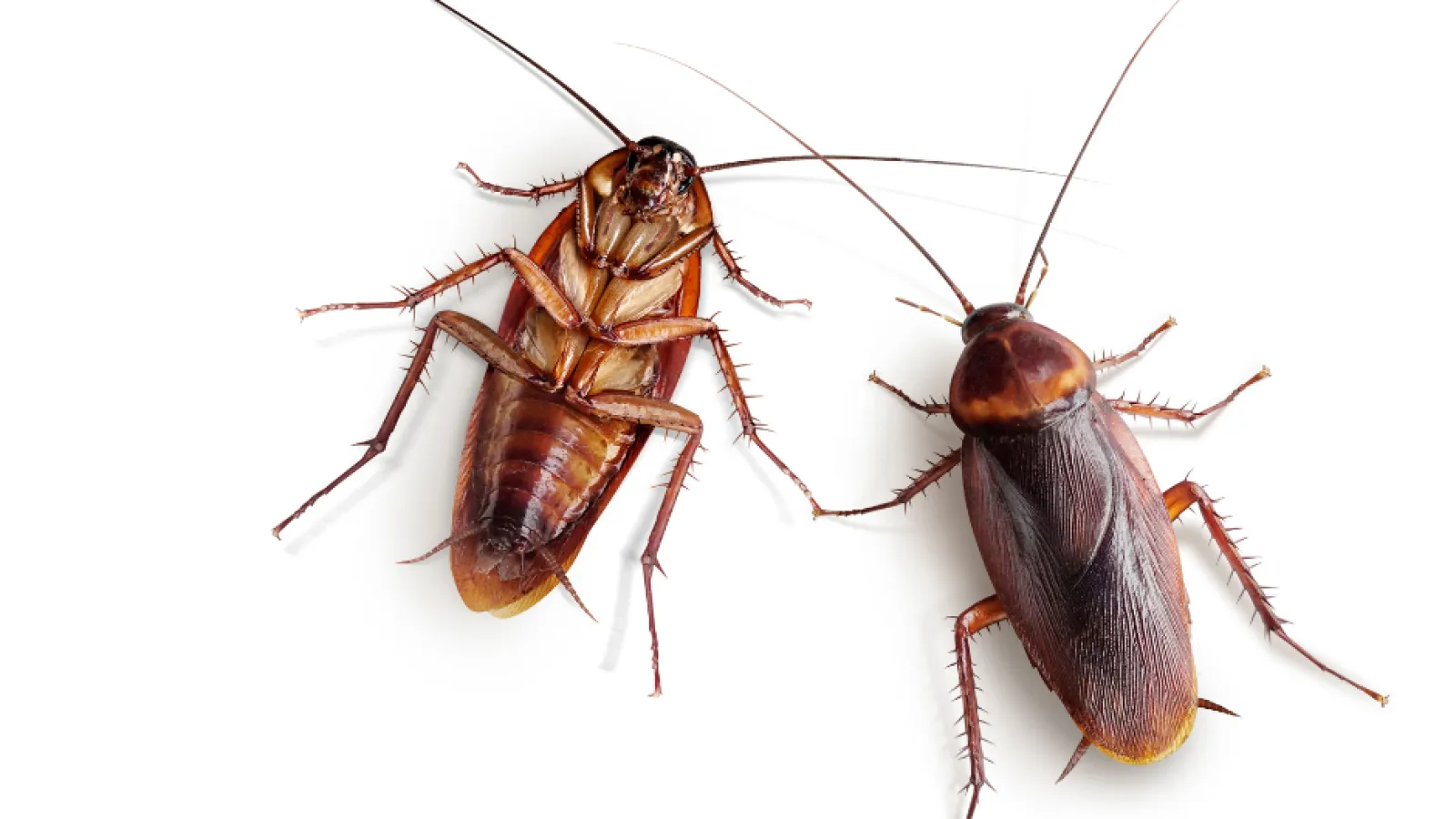
Frequently Asked Questions
Answers to the most common pest control questions
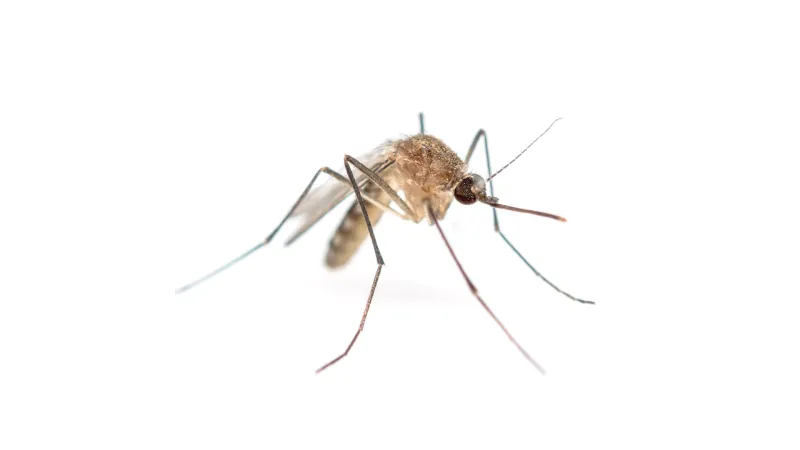
Mosquito Questions
Read all the buzz...
What can do to reduce mosquitoes around my home?
In addition to our mosquito control service, you can implement these steps to eliminate mosquitoes from your surroundings:
Replace any standing water in bird baths, ponds, or pools at least once weekly to reduce breeding sites.
Introduce mosquito-eating fish to ponds with standing water.
Turn over any empty flower pots, children's toys, and other objects that might hold water.
What is considered mosquito season?
Mosquitoes hibernate during winter and return when the temperature rises in the spring. By summer, mosquito populations peak and control is important. We treat for mosquitoes March through October.
Is mosquito control harmful to pets?
To minimize potential exposure to pests we suggest that animals remain indoors for at least thirty minutes after treatment is applied.
How do mosquitoes spread disease?
Mosquitoes spread disease primarily through their bites. When a mosquito bites an infected individual, it can ingest the virus or parasite causing the disease. This pathogen then replicates and multiplies within the mosquito's body. When the infected mosquito bites another person, it can transmit the pathogen into the bloodstream, potentially causing illness.
The most common diseases spread by mosquitoes include:
Malaria: Caused by Plasmodium parasites transmitted through the Anopheles mosquito's bite.
Dengue Fever: Caused by the dengue virus transmitted by Aedes mosquitoes.
Zika Virus: Transmitted by Aedes mosquitoes, particularly Aedes aegypti, and can cause birth defects if contracted during pregnancy.
West Nile Virus: Spread by infected Culex mosquitoes, leading to flu-like symptoms and, in severe cases, neurological complications.
Chikungunya: Transmitted by Aedes mosquitoes and characterized by fever and joint pain.
Yellow Fever: Caused by the yellow fever virus and transmitted by infected Aedes or Haemagogus mosquitoes.
Mosquito-borne diseases are a significant global health concern, particularly in regions where mosquitoes are prevalent year-round. Preventive measures such as mosquito control, insect repellents, and mosquito nets can help reduce the risk of disease transmission. Additionally, efforts to control mosquito populations and eliminate breeding sites are essential for preventing outbreaks of mosquito-borne illnesses.
How long do mosquitoes live?
The lifespan of a mosquito can vary depending on factors such as species, environmental conditions, and gender. In general:
Male Mosquitoes: Male mosquitoes typically have shorter lifespans compared to females. Their primary purpose is to mate with females, and they do not feed on blood. Male mosquitoes typically live for about 1 to 2 weeks.
Female Mosquitoes: Female mosquitoes, on the other hand, require blood meals for egg production. Their lifespan can vary based on environmental factors and species. In optimal conditions, some female mosquitoes can live for several weeks to a few months. However, in many species, the average lifespan of a female mosquito ranges from 2 to 4 weeks.
It's important to note that environmental factors such as temperature, humidity, and food availability can significantly influence mosquito lifespan
Why do mosquitoes bite some people more than others?
Mosquitoes are attracted to humans and other animals primarily by the carbon dioxide (CO2) we exhale, as well as other chemical cues and body heat. However, there are several factors that can influence why mosquitoes are more attracted to certain individuals:
Carbon Dioxide: Mosquitoes are highly sensitive to carbon dioxide, which is released when we exhale. Individuals who produce more CO2, such as those who are larger or engaging in physical activity, may attract more mosquitoes.
Body Heat: Mosquitoes are attracted to the warmth emitted by our bodies. People with higher body temperatures may be more appealing to mosquitoes.
Body Odor: Mosquitoes are attracted to specific odors emitted by humans, including sweat and other bodily secretions. Certain individuals may produce more attractive odors to mosquitoes based on their genetics, diet, and hygiene practices.
Skin Microbiota: The bacteria and other microorganisms that naturally reside on our skin can produce odors that attract mosquitoes. Differences in skin microbiota between individuals may contribute to varying attractiveness to mosquitoes.
Blood Type: Some studies suggest that mosquitoes may preferentially target individuals with certain blood types. For example, individuals with Type O blood may be more attractive to mosquitoes than those with other blood types.
Pregnancy: Pregnant women may be more attractive to mosquitoes due to changes in body temperature, metabolism, and the production of certain chemicals.
Clothing Color: Mosquitoes are also attracted to certain colors, with dark colors like black, navy, and red often being more attractive than lighter colors.
Genetics: There is evidence to suggest that genetic factors play a role in an individual's attractiveness to mosquitoes. Some people may be genetically predisposed to produce certain odors or chemicals that mosquitoes find more appealing.
While these factors can influence mosquito attraction, individual variation exists, and not everyone will be equally attractive to mosquitoes.
What time of day are mosquitoes most active?
Mosquitoes are most active during dawn and dusk, although some species may also be active during the daytime.
Can mosquitoes breed in small amounts of water?
Yes, mosquitoes can breed in even small amounts of stagnant water, such as in flower pot saucers, bottle caps, or puddles. Eliminating all sources of standing water, no matter how small, is essential for mosquito control.
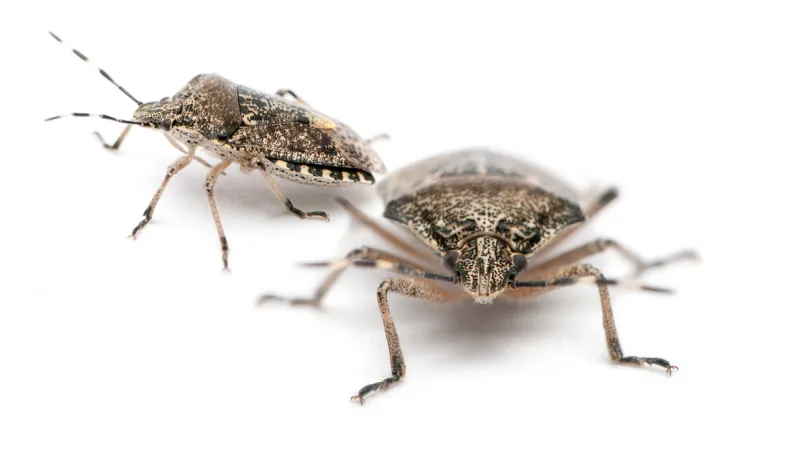
Pest FAQs
Answers from experts
What is Integrated Pest Management?
Integrated Pest Management (IPM) is an environmentally-conscious approach to pest control that relies on a combination of education and training. An IPM program utilizes biological information based on the type of pest that has been identified. Information gathered, in combination with advanced pest control procedures, is used to manage the pest with the most thorough and environmentally sensitive method of control.
Why do I still see pests in my home?
While our pest control specialists diligently work to keep your home and business pest-free, insects can sometimes still find their way in. After all, we are battling a force of Mother Nature. Since there is always the possibility of insects entering your home or business, our Quarterly Pest Control program is guaranteed. If you continue to see an issue, contact us to schedule an extra service call at no additional charge.
How are pests getting inside my home?
Insects adapt to survive. Therefore, insects will find any gap, crack or crevice to enter your home or business. Although achieving a completely pest-proof environment is desirable, it's often impractical.
Our pest control service includes an inspection of your home or business by a pest control specialist who will identify and list potential entry points for insects.
Are the pest control products you use safe for me, my children and my pets?
All of the products we use are safe for you, your family and your pets. Our highly trained pest control specialists evaluate and process each situation, then factor in Integrated Pest Management to minimize the risk of exposure while maximizing the effectiveness of each product.
I don’t see any pests in my home. Can I skip a quarterly service call?
Although we're pleased to have successfully eliminated insects from your residence or commercial space, it's crucial to maintain a protective barrier against pests along the exterior. Skipping a quarterly pest service could lead to an infestation. Staying on a consistent schedule is important as we not only apply treatments but it's also a time we can check for any unwanted pests.
I just had my quarterly service call, then it rained. Do you need to come back?
Our pest control specialists administer four primary treatments during each service. Among these treatments, crack and crevice applications and insecticide granules are less affected by weather conditions. Nonetheless, if you encounter any pest issues, PestNow's Quarterly Pest Control program is backed by a guarantee, which means an additional service may be conducted at no additional expense.
Do you have to come inside for a quarterly pest control treatments?
Our quarterly residential pest control program mainly focuses on exterior applications, especially when there are no specific interior pest problems. However, if you have an interior pest problem, there is no additional charge for treating the interior.
I have pests in my house but I’m not sure what they are. How can I find out?
Please browse our Pest Library for help identifying the insect. Should you not find the pest you are looking for, please contact us. Our skilled pest control experts will be happy to assist you.
What exactly do treatments involve?
For our pest control program, we will visit your property quarterly (every three months) and apply a spray treatment to the exterior. We will also remove any visible spider webs and take note of any noticeable gaps where pests may be entering. A service report will be sent to you upon completion.
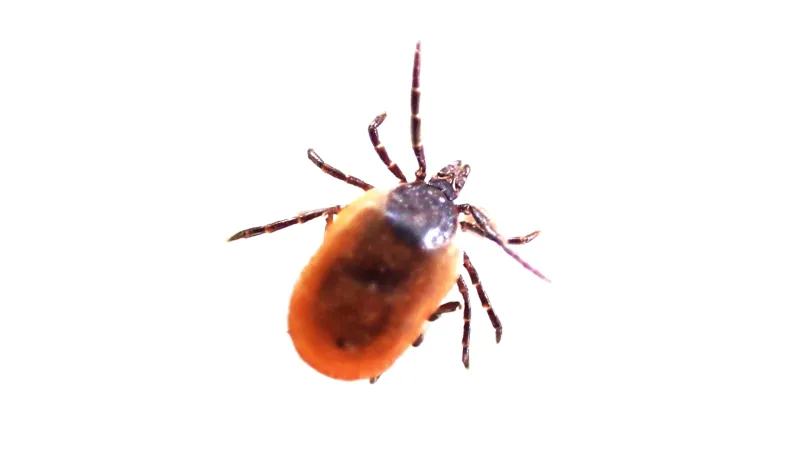
Tick Questions
Answers that'll tick all the boxes
How do ticks transmit diseases?
Ticks can transmit diseases such as Lyme disease, Rocky Mountain spotted fever, and others through their bite. When a tick attaches to a host and feeds on blood, it can transmit pathogens from its saliva into the host's bloodstream.
Where do ticks live?
Ticks are often found in wooded or grassy areas, as well as in shrubs, leaf litter, and tall grass. They can also be present in urban areas, particularly in parks and gardens.
How can I protect myself from tick bites?
Your best protection is prevention and population control. Our Yard Guard Program includes seven treatments from April to October. Each service protects from ticks, fleas, and mosquitoes for about 30 days, so we complete the service monthly.
To further shield yourself from tick bites, consider wearing long sleeves and pants in tick-prone areas, applying insect repellents containing DEET, and conducting routine tick checks on yourself, children, and pets following outdoor activities.
What should I do if I find a tick attached to my skin?
If you find a tick attached to your skin, use fine-tipped tweezers to grasp the tick as close to the skin's surface as possible and pull upward with steady, even pressure. Clean the area with rubbing alcohol or soap and water, and dispose of the tick by flushing it down the toilet or placing it in a sealed bag or container.
What is Alpha-Gal Syndrome?
Alpha-gal syndrome, officially known as alpha-gal allergy, is a condition triggered by consuming red meat, caused by an allergy to a sugar called alpha-gal. This sugar is present in various meats like pork, beef, rabbit, and lamb, as well as animal products like milk and gelatin. The syndrome is linked to tick bites, particularly those from the lone star tick, which has expanded its range across the United States. Symptoms typically occur a few hours after consuming alpha-gal-containing foods and may include itching, hives, swelling, difficulty breathing, vomiting, and diarrhea. Diagnosis can be challenging, as many doctors are not familiar with the syndrome, but early recognition is crucial for managing symptoms and preventing severe reactions.
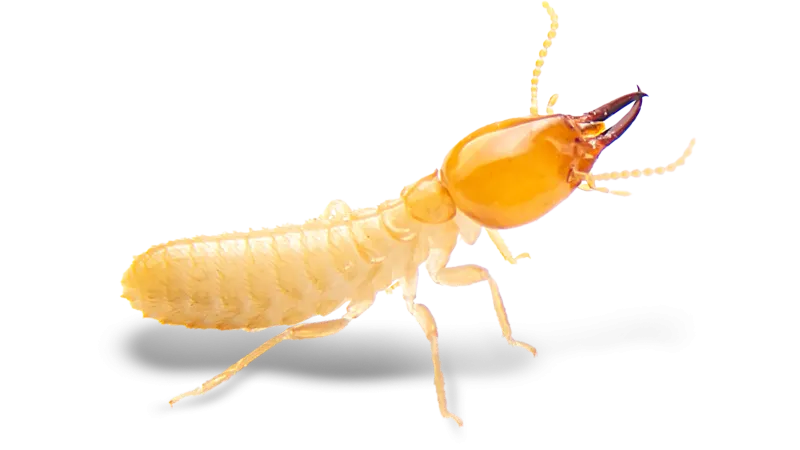
Termite Protection
Answers to common questions
What can I do to prevent termites?
To effectively ward off termites, regular inspections and treatment of your residential or commercial property are crucial. Additionally, implementing these practices can help minimize the likelihood of encountering a pest control issue:
- Ensure proper drainage by directing water away from your property with well-maintained downspouts, gutters, and splash blocks.
- Promptly address any structural damage caused by moisture, such as roof leaks or plumbing leaks.
- Carry out routine maintenance tasks like caulking, painting windows, and cleaning gutters to uphold the integrity of your property.
- Reduce humidity levels in crawl spaces to discourage termite activity.
- Prevent vegetation, including shrubs and vines, from obstructing vents or encroaching upon the exterior of your property.
- Avoid wood contact with the ground around your property to minimize termite attraction.
- Clear crawl spaces and the vicinity of your property from any wood or construction debris that may serve as a termite food source.
Can I treat termites on my own?
While attempting DIY termite control is possible, many homeowners lack the expertise and training possessed by professional exterminators, which is essential for effectively addressing termite issues. Properly identifying the termite species and tailoring the treatment approach to consider their biology and behavior is crucial for successful eradication. Additionally, ensuring the correct handling of products is vital for treatment efficacy. With PestNow, a pest control specialist equipped with the necessary training and expertise can deliver the most effective solution to your termite infestation.
What damage do Eastern Subterranean Termites cause?
Eastern subterranean termites feed on wood and cellulose materials, causing structural damage to homes, buildings, and other wooden structures. They can weaken wooden supports, flooring, and furniture, leading to costly repairs.
Are termites covered by homeowners' insurance?
Termites attack millions of homes each year, causing billions of dollars in damage, and unfortunately, termite damage is not covered by most insurance policies. According to the National Pest Management Association, repairs can cost homeowners, on average, $2,500 to $5,000.
I just bought a house that you have under warranty. Do I have to pay a fee to transfer it to my name?
Our termite service agreements can be transferred at zero additional cost. If you've recently acquired a home covered under warranty with PestNow, simply provide us with your name and contact details, and our team will handle the transfer.
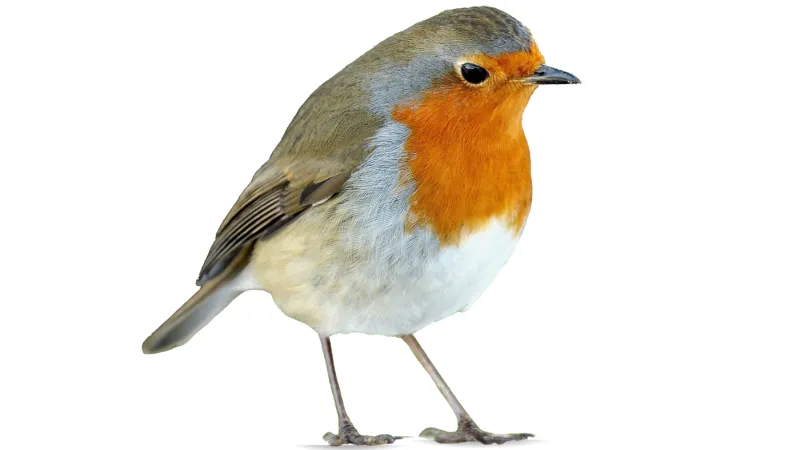
Wildlife FAQs
Everything you need to know
How can I prevent wildlife from entering my home or business?
Seal any cracks or openings in the building's exterior, install chimney caps and vent covers, keep food stored securely, and trim back vegetation that could provide access to the structure.
What should I do if I find evidence of rodents in my home or business?
Take steps to eliminate food sources, seal entry points, keep a tidy home, and hire PestNow for more extensive infestations.
What should I do if I encounter a bat in my home or business?
Open windows and doors to allow the bat to exit on its own, if possible. If the bat doesn't leave, contact PestNow.
Is it safe to feed wildlife in my yard?
Feeding wildlife can disrupt natural behaviors, attract unwanted pests, and potentially lead to dependency on human-provided food. Instead, focus on creating habitat-friendly landscapes with native plants and water sources.
How can I identify common signs of wildlife activity around my property?
Look for tracks, droppings, chew marks, nesting materials, and other physical evidence. Pay attention to unusual noises or odors that could indicate the presence of wildlife.
Which wildlife animals do you handle?
Birds, bats, snakes, raccoons, squirrels, and more. PestNow is ahead of the pack (pun intended) with certified and trained wildlife experts on staff. We have programs and solutions for your toughest wildlife problem.
Do all wild animals carry rabies?
While any mammal has the potential to carry rabies, certain animals are more commonly associated with transmitting rabies. In North America, bats are the primary rabies vectors, while globally, dogs are the main carriers. Despite concerns about raccoons, actual transmission to humans is exceedingly rare. Seeing a raccoon active during daylight hours and behaving normally is not necessarily a cause for alarm, as many raccoons are active during the day. However, if an animal displays abnormal behaviors such as walking in circles, stumbling, or foaming at the mouth, it may be infected with rabies. This applies to other animals like foxes, skunks, and a few others as well.
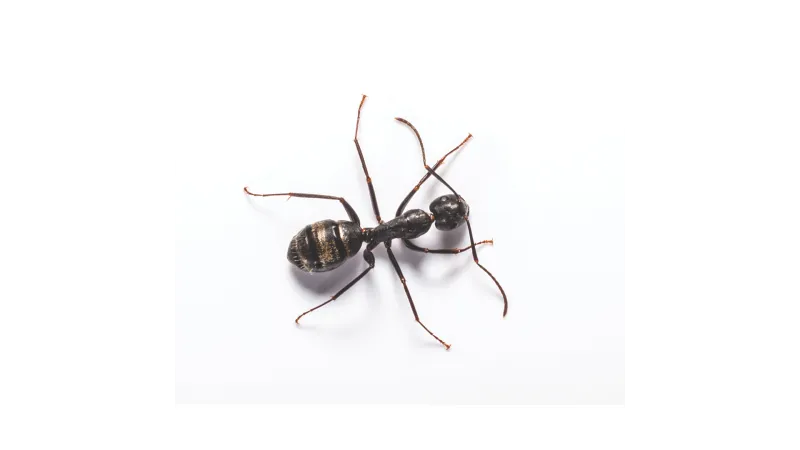
Carpenter Ant FAQs
Everything you need to know
Do carpenter ants eat wood like termites?
No. Unlike termites, carpenter ants don't eat wood. They chew through it to create nests and galleries, which are more similar to those of carpenter bees. Over time, this can weaken structural wood and cause costly damage.
What should I do if I find evidence of rodents in my home or business?
Carpenter ants are larger than most other ants, and they often nest in moist, decaying wood. You may also notice frass (sawdust-like material) near baseboards or windowsills—something you wouldn't see with regular ants.
Where do carpenter ants live?
Carpenter ants can be found nesting outdoors where they build nests in tree stumps, logs, and woodpiles. Indoors, they look for moist or damaged wood behind walls, in window frames, or under floors, especially near leaks.
When are carpenter ants most active?
Carpenter ants are active year-round indoors, but outdoor activity peaks in spring and summer. Swarmers (winged ants) usually appear between April and June in D.C., Maryland, and Virginia.
How can I prevent carpenter ants?
You can help prevent carpenter ant infestations by following these tips:
- Seal cracks and crevices around your foundation
- Trim tree limbs and shrubs away from your property
- Fix leaks and moisture issues, especially in crawlspaces, basements, and attics
- Store firewood at least 20ft away from the home
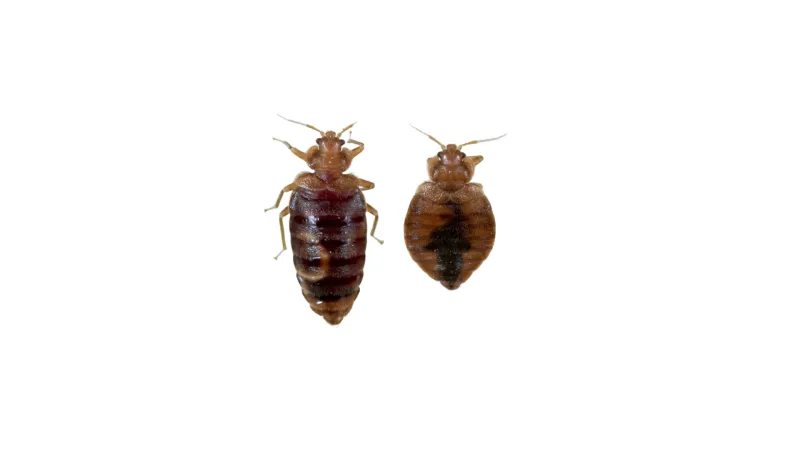
Bed Bugs FAQs
Bed bug exterminator expert
Are bed bugs dangerous?
What should I do if I suspect bed bugs?
Avoid moving things from room to room. Contact PestNow immediately to inspect and confirm the issue before it spreads.
Can I get rid of bed bugs on my own?
DIY treatments are rarely effective against bed bugs due to their ability to hide in hard-to-reach places and resist some over-the-counter products. Professional treatment, from PestNow, is the most reliable solution.
How quickly do bed bugs reproduce?
Female bed bugs are prolific breeders. On average, a single female bed bug can lay between 200 and 500 eggs in her lifetime, depending on environmental conditions and access to blood meals. Here's how that breaks down:
-
Egg Laying Rate: A female typically lays 1 to 5 eggs per day after each blood meal.
-
Egg Development: Bed bug eggs hatch in about 6 to 10 days, depending on temperature and humidity.
-
Rapid Growth: Nymphs (baby bed bugs) go through five stages of development, requiring a blood meal at each stage. Under ideal conditions—warm temperatures (around 70-80°F) and regular feeding—bed bugs can go from egg to adult in as little as 21 to 30 days.
-
Infestation Growth: With multiple females laying eggs and nymphs reaching maturity in just a few weeks, populations can double every 16 days. That means a minor issue can quickly turn into a widespread infestation if not treated early.
Because bed bugs are small, silent, and often go unnoticed in the early stages, homeowners in the DMV area may not realize they have a problem until the population has exploded. By the time you start seeing bites or visible bugs, there could already be hundreds hiding in cracks, crevices, and furniture seams.
Do bed bugs go away in the winter?
No. Since bed bugs live indoors, they remain active year-round and are rarely affected by seasonal temperatures.
How can I prevent bed bugs in the future?
Avoid bringing secondhand furniture into your home without inspection, use protective covers on mattresses, and always check hotel rooms when traveling.
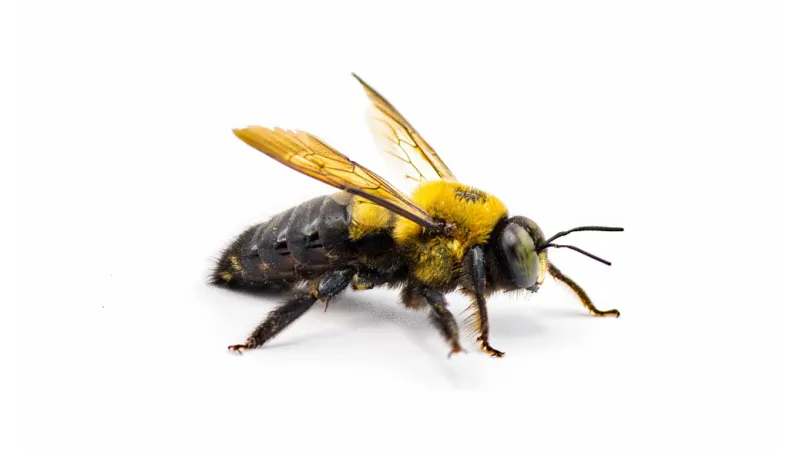
Carpenter Bee FAQs
Bee exterminator expert
What do carpenter bees look like?
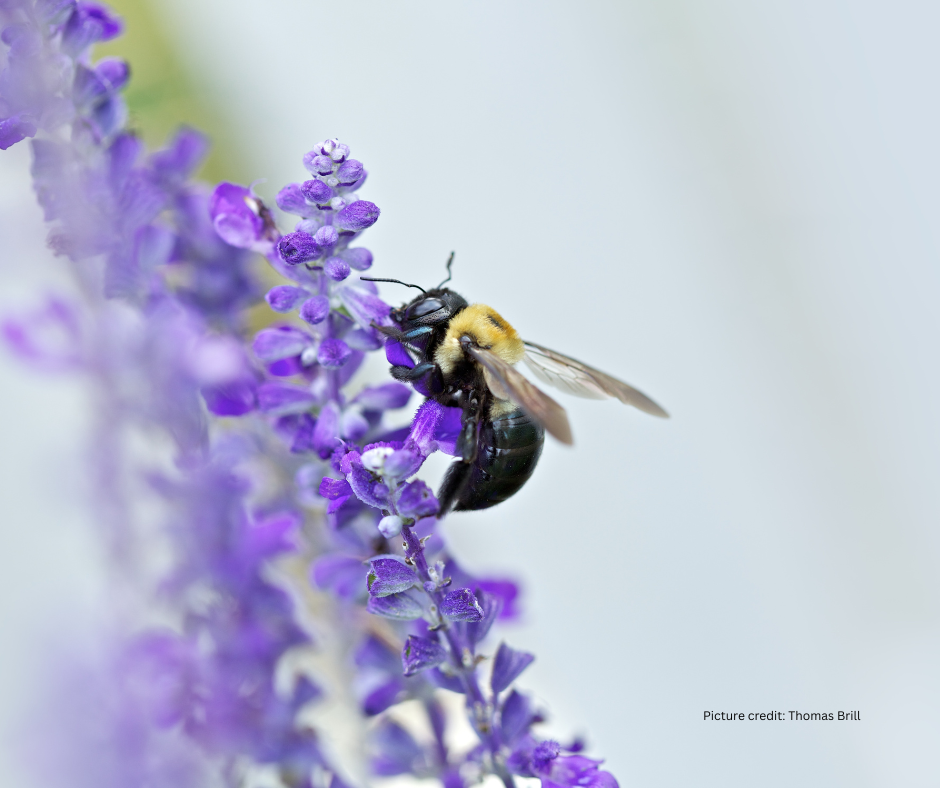
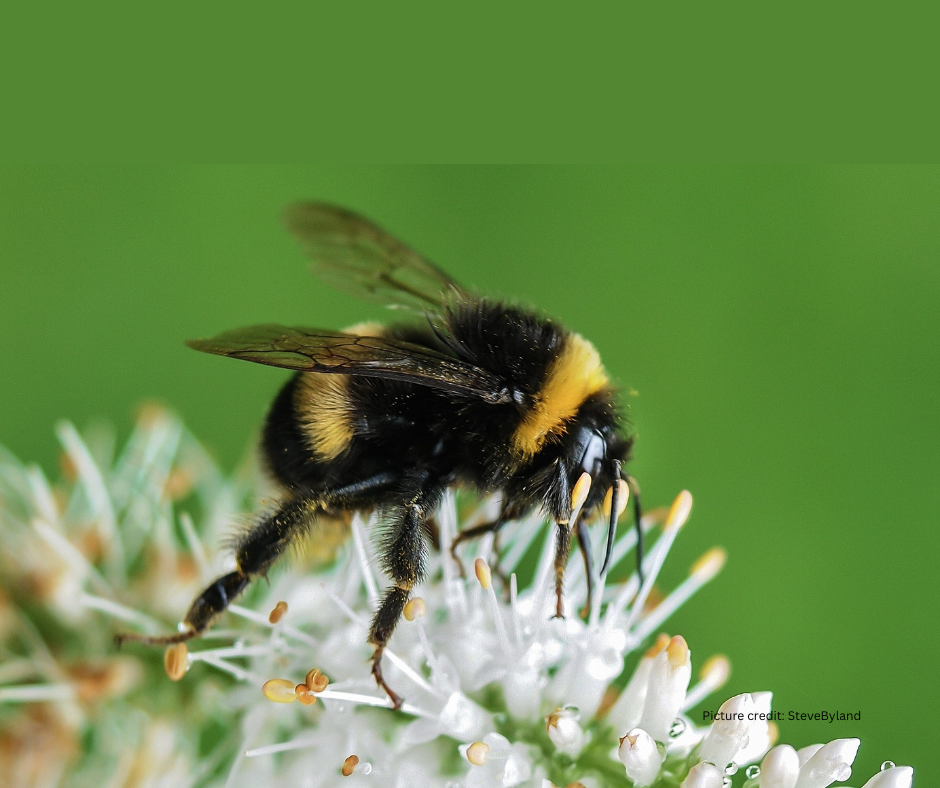
Do carpenter bees sting?
Male carpenter bees cannot sting, but they may hover near people and appear aggressive. Females can sting, but they are typically docile and only sting when provoked or handled.
Do carpenter bees eat wood?
No. Carpenter bees don't eat wood, but they drill perfectly round holes into wood to lay their eggs. Even though they're not eating the wood, they're still causing damage by tunneling through your wooden structures.
When are carpenter bees most active?
Carpenter bees in the DMV (D.C., Maryland, Virginia) area are most active during the spring months, typically from March through May. This is when adult carpenter bees emerge from the tunnels where they overwintered and begin looking for mates. After mating, females immediately start excavating new tunnels or expanding existing ones to lay their eggs.
Activity can continue into early summer, especially during periods of warm, sunny weather, which carpenter bees prefer. You'll often see them hovering around eaves, decks, fences, and other wooden structures during this time. Males are particularly noticeable as they're territorial and may fly close to people, though they don't sting.
By late summer, activity usually decreases as new adults develop and the cycle prepares to repeat. However, if the weather stays unusually warm, carpenter bee activity may linger.
Do carpenter bees come back year after year?
Yes—carpenter bees are notorious for returning to the same nesting sites year after year. Once a structure becomes infested, it can become a permanent target unless proper steps are taken. Female carpenter bees prefer to reuse old tunnels, expanding them each season to lay new eggs. These tunnels can grow up to several feet long over time, weakening wood and leading to costly structural damage.
Even if the original bees die off, their offspring often emerge and return to the same area the following spring. In fact, the scent left behind in old galleries can attract future generations, essentially turning your home into a long-term breeding ground.
How can I prevent carpenter bees?
You can prevent carpenter bees by:
- Painting or staining exposed wood—they prefer untreated surfaces
- Sealing old bee holes — wood putty is a good resource
- Install metal flashing or trim in vulnerable areas
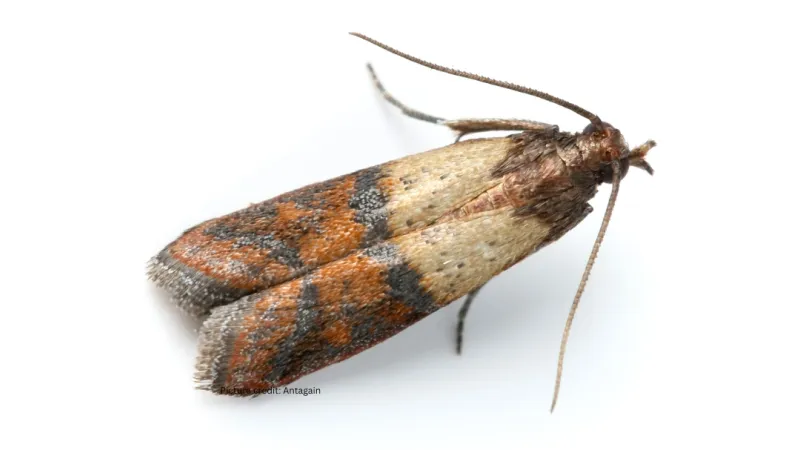
Pantry Pest FAQs
All about pests in the pantry
How can I tell if I have pantry pests?
Signs of pantry pests include:
-
Tiny moths flying around the kitchen or pantry
-
Small beetles crawling inside cabinets
-
Webbing or clumps in flour or cereal
-
Tiny holes in food packaging or grains
How do I get rid of pantry pests?
To get rid of pantry pests, please follow these tips:
- Discard all infested food items in sealed trash bags.
- Clean and vacuum pantry shelves thoroughly, including cracks and corners.
- Store all food in airtight containers made of glass, metal, or heavy plastic.
- Consider contacting PestNow for targeted treatments and long-term prevention.
What pests are considered pantry pests?
Common species of pantry pests include Indian meal moths, cigarette beetles, and flour beetles.
How can I prevent pantry pests?
Pantry pests prevention tips:
Inspect dry goods before buying or storing
-
Rotate pantry stock and check expiration dates
-
Use bay leaves as a natural deterrent in containers
-
Regularly wipe down shelves and vacuum crumbs
-
Keep dry goods sealed tightly
Are pantry pests dangerous?
Pantry pests like Indian meal moths, cigarette beetles, and flour beetles don't bite, sting, or spread disease. However, they pose a different kind of threat—one that affects your food supply, finances, and peace of mind.
These insects contaminate food by laying eggs inside packaging or directly in dry goods. As the larvae hatch and develop, they leave behind webbing, droppings, shed skins, and dead insects, making the food unappetizing and unsafe to consume. Even if you don't see the pests right away, their presence often leads to spoilage, unpleasant odors, and waste, forcing you to throw out large amounts of food. Additionally, pantry pests reproduce rapidly. What might start as a single infested bag of flour can turn into a widespread infestation throughout your pantry or kitchen cabinets in just a few weeks. They can spread to pet food, spices, and even unopened items as they can chew through paper, cardboard, and even thin plastic packaging.
What foods do pantry pests like?
Pantry pests are attracted to:
-
Flour and baking mixes
-
Rice, oats, and cereal
-
Pasta and dry pet food
-
Nuts, seeds, spices
-
Dried fruit
They can chew through paper, cardboard, and even thin plastic packaging.
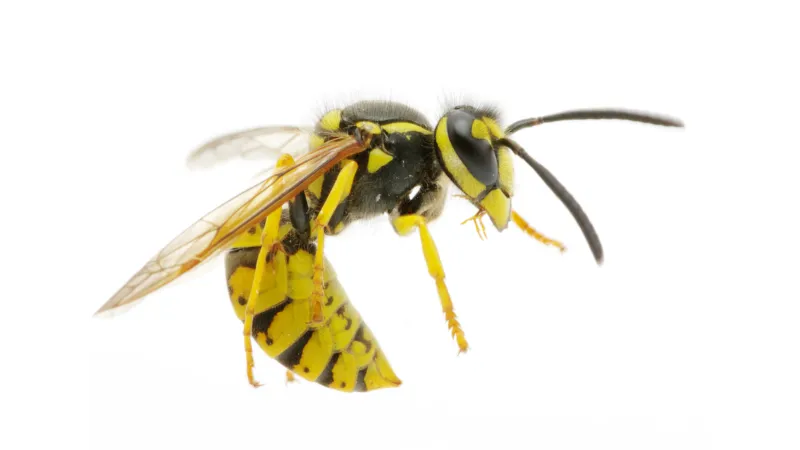
Yellowjacket FAQs
Stinging insect exterminator
What are yellowjacket wasps?
Yellowjackets are a type of wasp known for their distinctive black and yellow coloration, narrow waist, and fast, aggressive flying behavior. Unlike bees, yellowjackets have smooth stingers and can sting multiple times, making them particularly dangerous when provoked. They are part of the Vespidae family and are considered both scavengers and predators.
Where do yellowjackets build nests?
Yellowjackets build nests in a variety of places, including:
-
Underground burrows
-
Wall voids
-
Eaves and attic spaces
-
Bushes, trees, and shrubs
-
Sheds and other outbuildings
Some nests are hidden, making accidental disturbances common and dangerous.
How can I prevent yellowjackets?
Prevent yellowjackets with these tips:
-
Keep trash bins tightly sealed
-
Clean up food and drinks outdoors
-
Cover food during picnics or barbecues
-
Pick up fallen fruit from trees
-
Seal cracks or holes in siding, soffits, and eaves
-
Avoid wearing bright colors and floral scents outdoors